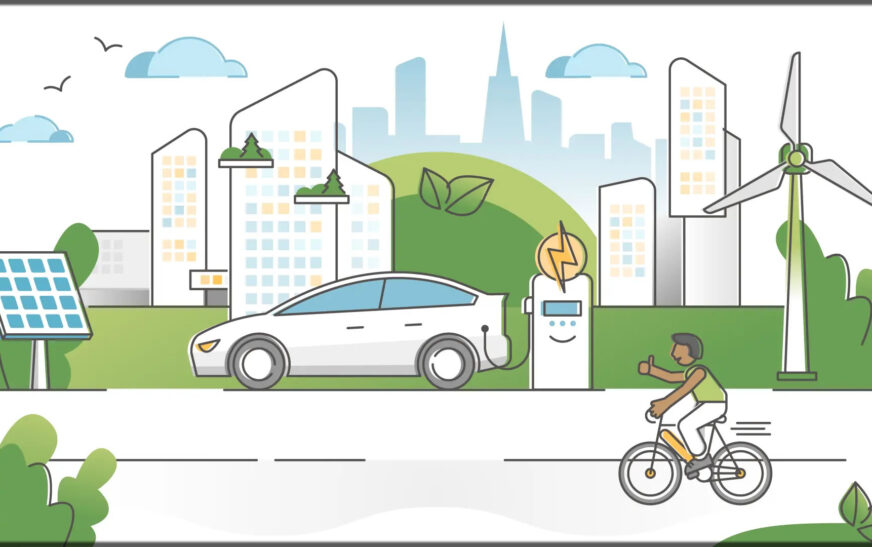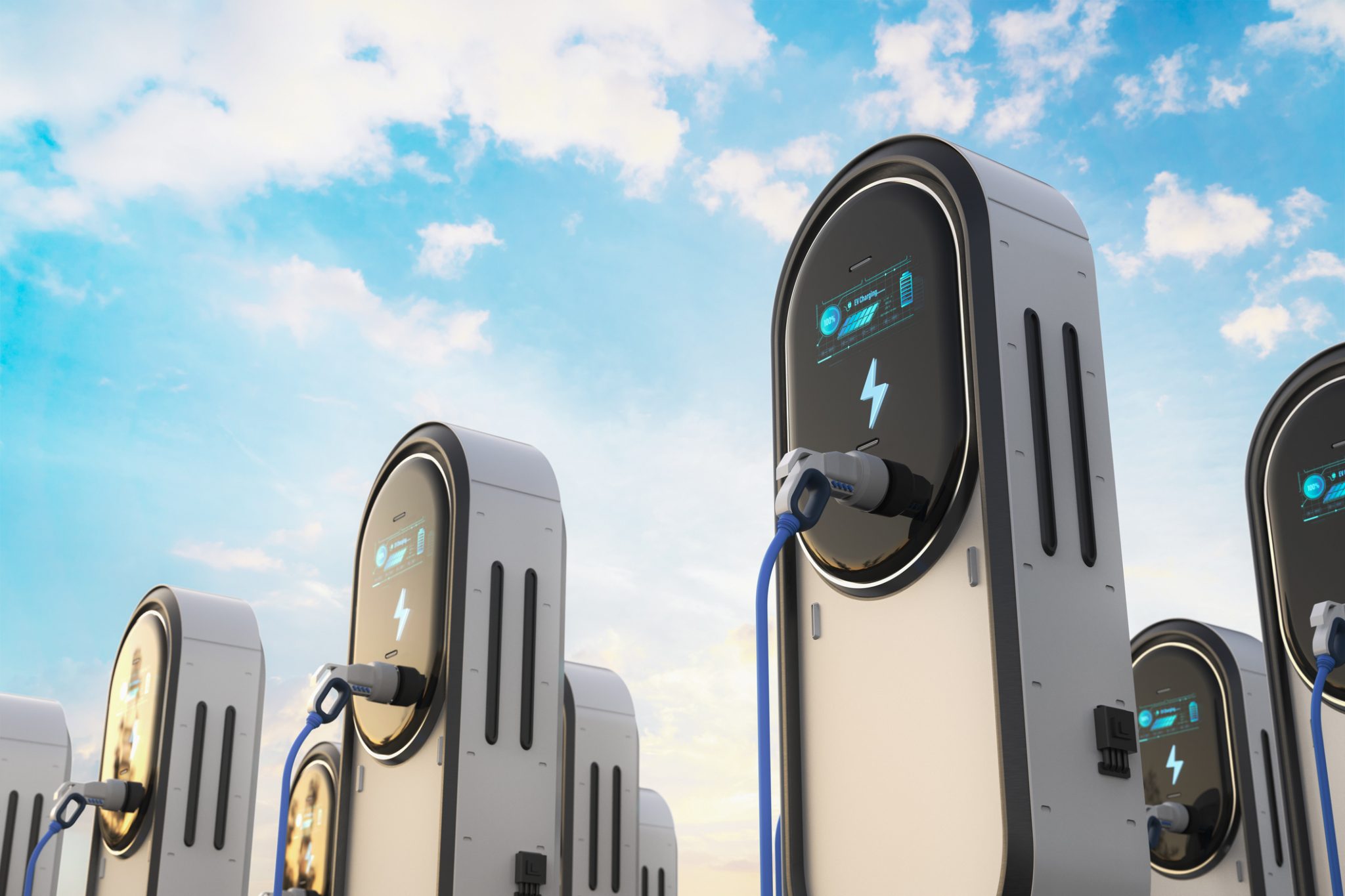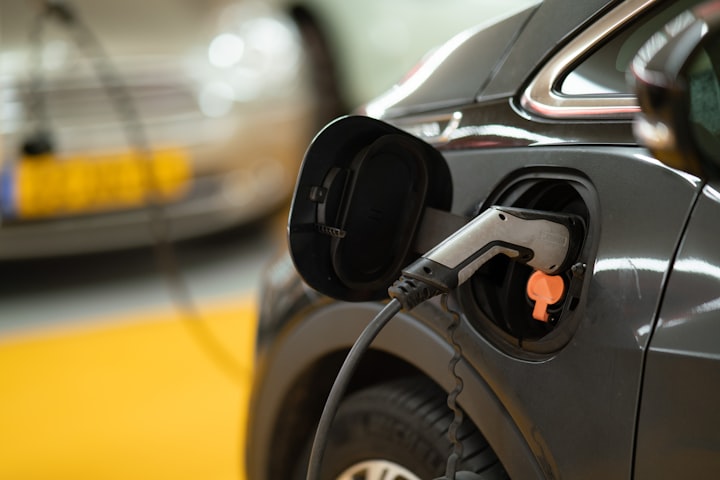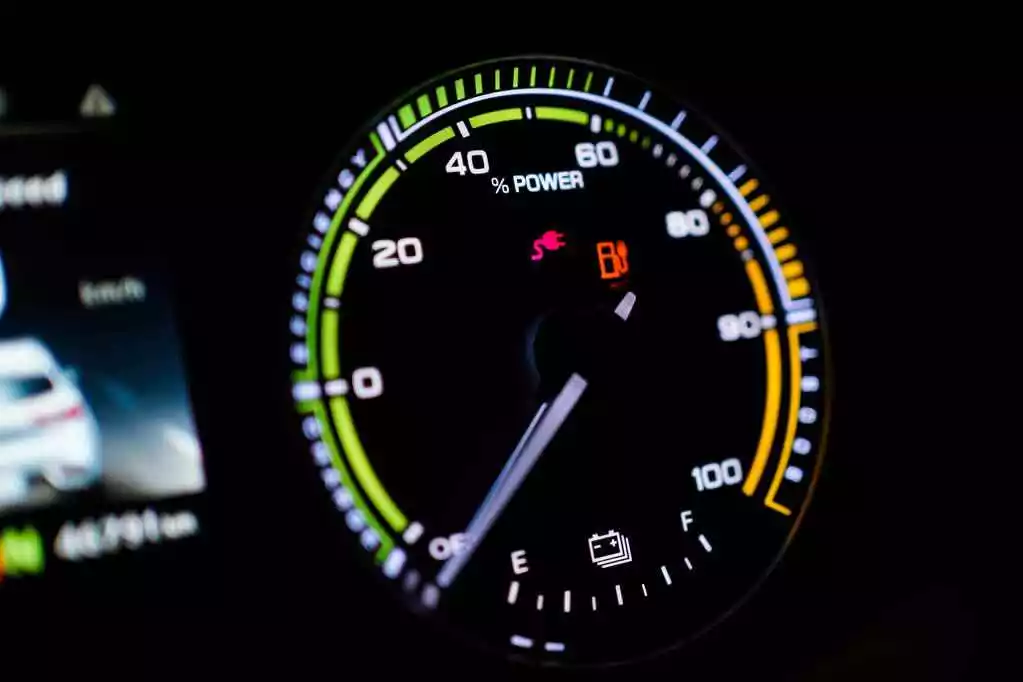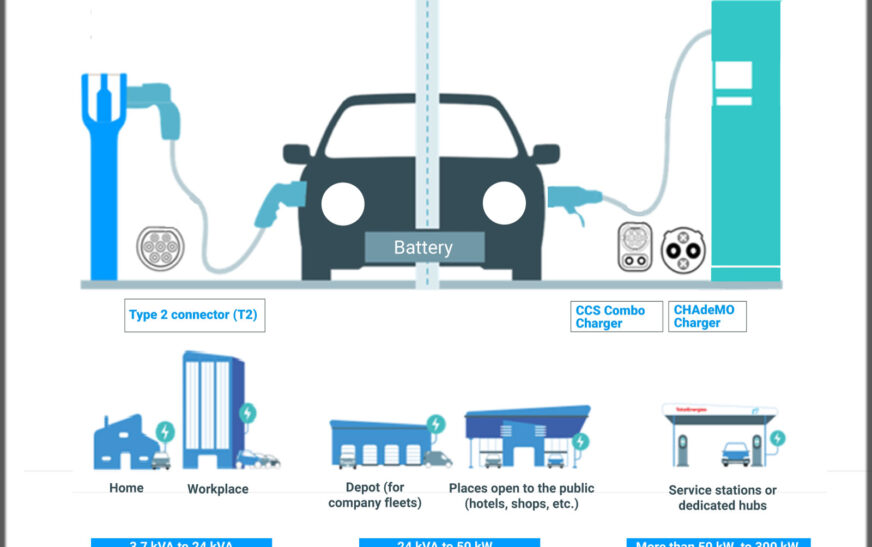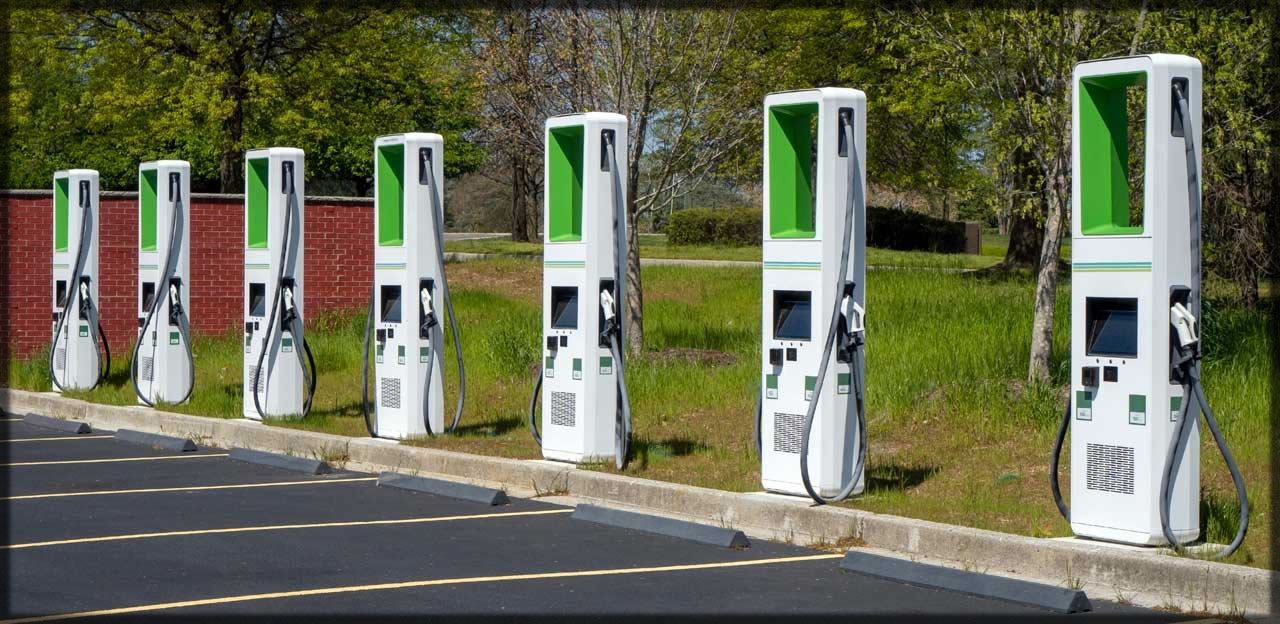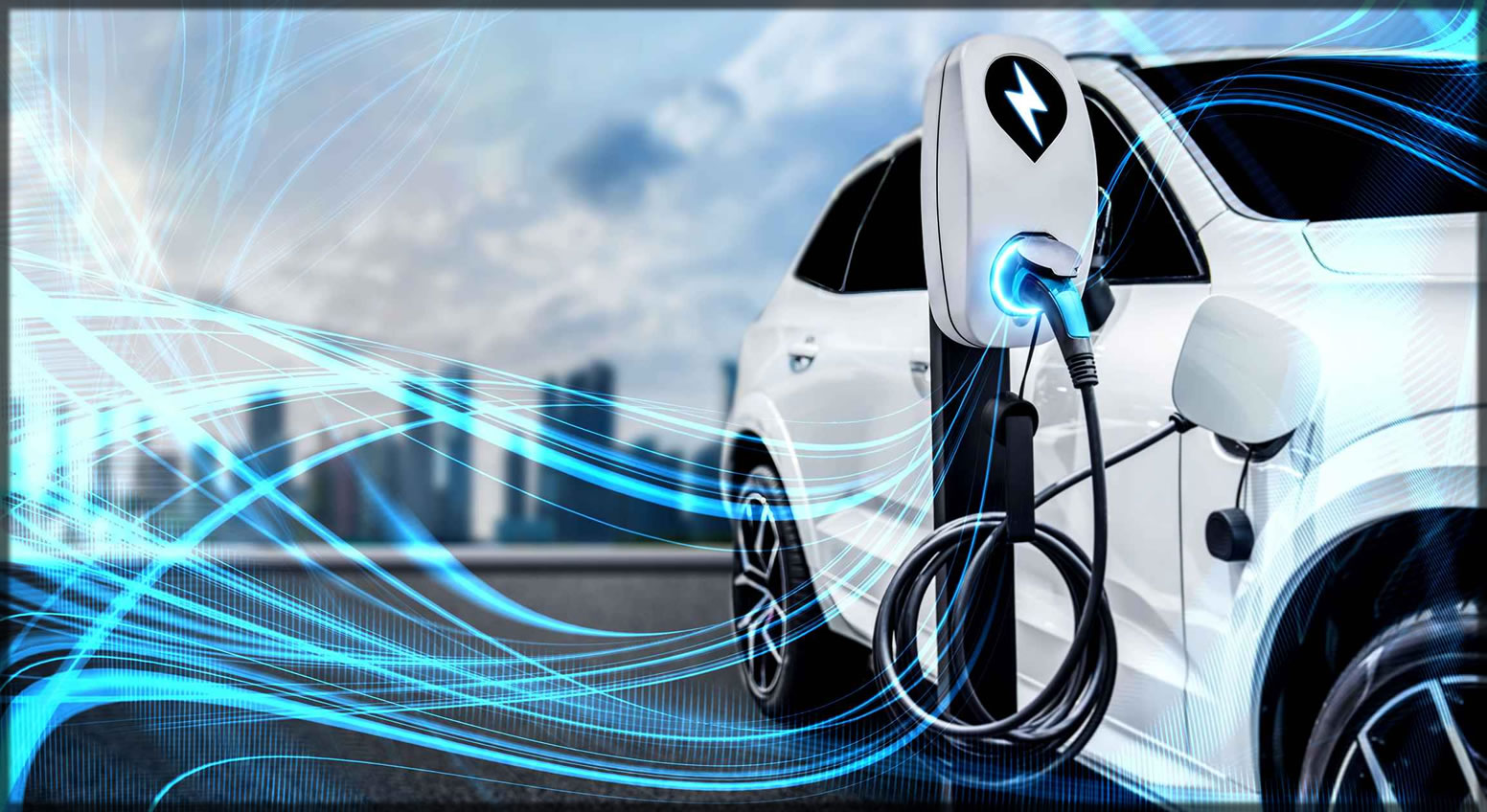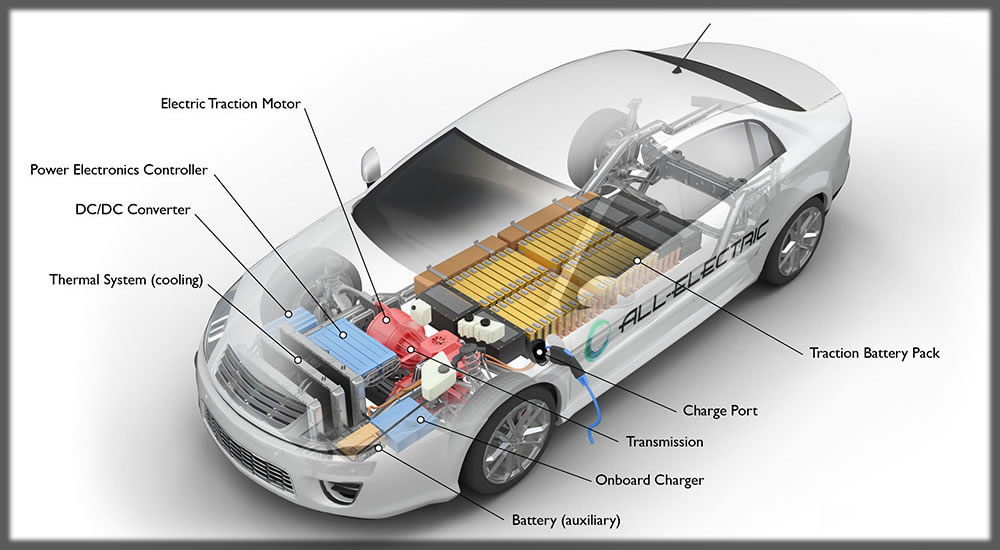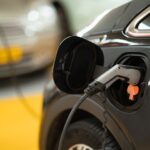How Electric Vehicles Are Helping Cities Go Green. As the globe increasingly focuses on reducing carbon dioxide (CO2) emissions and pollution, electric vehicles (EVs) are increasing in popularity. Research repeatedly concludes that EVs have lower lifetime greenhouse gas and air pollutant emissions than petrol and diesel cars—even after factoring in vehicle production and electricity generation.
But as Britain became Europe’s largest EV market in 2024, many have questioned how environmentally friendly and clean EVs actually are. So, let’s have a little closer examination at EVs’ impact on the environment.
Are EVs as green as they seem?
In 2024, approximately 17.5 million EVs were sold worldwide. In most cases, when an individual purchased an EV, it was for environmentally friendly motives. Let’s go through why EVs make good on their environmentally friendly promise:
Lower greenhouse gas emissions
One of the greatest strengths of EVs is that they can make a big impact in terms of greenhouse gas emissions. Unlike petrol and diesel cars, EVs produce no tailpipe emissions, and no CO2 enters the atmosphere via them at all. That is a big boost in terms of cleaner streets for everyone.
To put that into perspective, traditional petrol vehicles emit around 165 grams of CO2 for every kilometre, and diesel vehicles emit around 170 grams of CO2 for every kilometre. In comparison, EVs emit on average 50 grams of CO2 for every kilometre, factoring in the electricity generated. That’s a total of 1.5 million grams of CO2 saved in a year, which is the equivalent of four round trips from London to Barcelona. That’s a huge reduction in CO2 emissions, and one which highlights in stark relief the massive environmental advantage of EVs over traditional petrol and diesel vehicles.
Less noise pollution
Compared to conventional petrol and diesel cars, whose sound originates in both the engine and exhaust, EV motors make hardly any sound, and even less at slow speeds. This reduces street noise, and can contribute to quieter and nicer city environments for humans and animals alike.
Improved energy efficiency
EVs are more efficient in terms of energy with regard to converting a larger portion of car battery energy into motion when compared with petrol and diesel cars. Petrol cars, on the other hand, waste approximately 75–84% of their energy in terms of heat, friction, and loss in any form, and EVs waste approximately 31-35%. Hence, EVs save overall demand for energy in terms of reduced loss of energy. Hence, EVs become a wiser, environmentally friendly alternative for use.
HOWEVER… while the EV marketplace continues to grow at a breakneck pace, criticism about the supposed environment-saving aspects of them has ensued. So, it’s worth having a chat about why EVs won’t necessarily ‘WATT’ everyone believe:
EV production emissions, a shock to the environment?
Producing EVs is an energy-intensive activity. Emissions in EV production have a tendency to be larger in contrast with petrol cars. That is a consequence of lithium-ion battery production, a key part of an EV, generating a variety of greenhouse gas emissions. Some of them include CO2, methane (CH4), sulphur dioxide (SO2), and Nitrogen oxides (NOX).
However, as technology progresses, this is getting for the best. With ever-improving production techniques — such as using recycled and renewable sources — being discovered, the amount of greenhouse emissions that occur during battery production will become even better.
Wasted Potential? Battery Recycling Challenges
The waste and disposal of EV batteries cause significant environmental concerns. EV batteries have a 20-year life, but when replaced, can cause a lot of waste. Recycling EV batteries is even a challenge, with a complex composition, high cost, and low yield of toxic materials including lithium and cobalt. On top of that, improper disposal and handling can make it even worse. For example, toxic chemicals in EV batteries can leak into water and soil, and cause significant impact on both environments and humans’ health.
However, reusing and recycling EV batteries is a developing marketplace. There is continuous work researching reusing second-hand batteries and reusing them in new technology, such as storing electricity. Reusing batteries in new technology could stabilize the National Grid and store renewable energy, lessening the environment impact of producing EV batteries. Recycling 50% of car batteries at the end of life for use in storing energy could provide a 96 GWh capacity in 2030, 3,000 GWh in 2040, and 12,000 GWh in 2050, according to studies. That stored energy could then be drawn down during times of high demand when your price of electricity is high, reducing your bill for energy. In addition, with increased energy storage, renewable energy can become reliable – even when the wind isn’t blowing and the sun isn’t shining, renewable energy will have a constant source!
Finally, with new V2H technology powering one’s residence, one will have one’s own unit for storing energy in a future near at hand. Not only will it save one money and serve for backup, but it will offer yet one additional opportunity for reusing EV batteries. Recycling batteries for residential use extends their life, keeps them out of a landfill, and reduces the environment footprint of production. Recycling in a loop promotes a cleaner environment for a battery lifecycle, reversing current environment degradation through production.
In total, even when lithium-ion battery production is included, EVs represent a cleaner alternative. Greenhouse gas emissions over a car’s life span are much less for EVs compared to petrol and diesel cars, and EVs have a significant role in curbing worldwide carbon emissions.
Mining impacts: a deeper analysis
When producing batteries for Electric Vehicles, mining for lithium, cobalt, and nickel generates a range of environment-related issues. For one, processing cobalt and nickel can result in heightened sulphur dioxide (SO2) emissions, generating hotspots for pollution. In a similar manner, chemicals such as hydrochloric acid, used in mining, can poison water sources and lands. In a few cases, it has culminated in occurrences such as riverine deaths of fish near mining areas.
Also, mining for EV battery materials can have catastrophic social consequences, most prominently in nations like the Democratic Republic of Congo. There, cobalt mining has been at fault for poor working conditions, with workers enduring perilous working environments and inadequate protective gear in most instances. There have been widespread concerns about child labour and encroachment onto native communities’ lands, highlighting the imperative for ethical and responsible EV battery mining operations to become a reality.
Nevertheless, scientists have been developing EV battery technology that uses less toxic materials, paving the way for greener options. At the same time, advancements in EV battery recycling enable 90% of the materials used in batteries to be extracted and reprocessed, reducing waste and saving resources.
Businesses are taking action, too, to prioritize responsible sourcing, fair labour practices and an end to child labour. For example, UK-based companies and organisations represented through the Global Battery Alliance (GBA) commit to putting an end to child labour in the battery value chain through a range of actions, such as developing a digital Battery Passport to track and authenticate a ban on child labour in cobalt mining. Meanwhile, international collaboration is driving efforts to use responsible mining techniques and secure a reliable source of key materials.
Though the production of EV batteries will still have significant environmental and social issues, ongoing technological innovation, recycling, and responsible sourcing will be central to reducing these effects. By addressing these issues and coming up with sustainable solutions, the industry can ensure that the transition to EVs will be part of a cleaner future without compromising human rights and the well-being of the planet.
Drive to a Greener Future with EDF
As Britain’s largest zero-carbon electricity producer, EDF is committed to taking the UK towards its ambitious 2050 target for net zero emissions and protecting the environment. As can be seen, with a caveat for specific environmental concerns, EVs will have a significant role in delivering such a target, and it’s for this reason that the UK government are pushing for a heightened presence of EVs in UK roads through policies such as The Zero Emission Vehicle (ZEV) mandate.
In January 2024, when in force, 100% of new cars in Great Britain will become zero-emission cars by 2035. So why join our journey to net zero and make a positive impact? And if you’re one of our current EV drivers, EDF has a range of special EV tariffs powered with 100% zero-carbon electricity that we generate ourselves. With Pod Point Plug & Power, for example, or with our overnight tariff, GoElectric Overnight, our EV tariffs mean that not only will you save money, but you will save carbon when you charge your EV at home! OR…if you don’t yet have an EV, then no better time to make the switch!
With our approved partner DriveElectric, one of the UK’s most experienced EV leasing companies, leasing an EV couldn’t be simpler. With ten years’ experience in EV leasing and over a thousand cars delivered, flexible, competitive options for a variety of requirements can be arranged through DriveElectric.

Require a short-term agreement, or a long-term one? With DriveElectric, switching to an EV is simple and convenient. View our leasing options below By becoming a part of EDF, you’re helping to speed up greener, cleaner transport and propel Britain towards a net zero future! Together, we can make a genuine difference, reducing CO2 emissions, backing renewable growth, and building a cleaner, healthier future for all. Let’s drive towards a net zero future—one EV at a time

